THE REMARKABLE PARIS PAGODAS – Part 1
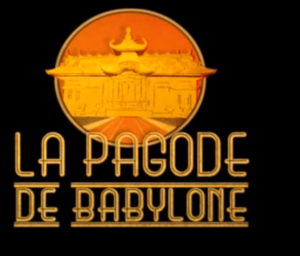
Paris has three remarkable and unusual pagodas. Curiously, only one of them was built as a shrine. Of the other two, one is bold and conspicuous, while the other is discreet and hidden within a dense bamboo and ginko garden. What the three have in common is that their histories are fascinating, with just a hint of mystery.
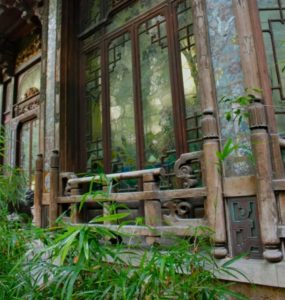
Tucked away in the prestigious 7th arrondissement is a delicate, Japanese-style pagoda, known as La Pagode. It was built in 1896 by a prominent businessman as a birthday gift for his wife Amandine. Some years later, it was transformed into what became a fabled cinema.
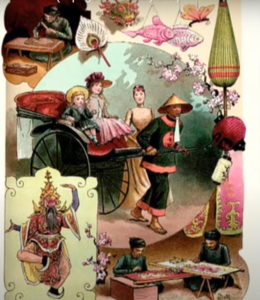
The year 1896 was at the peak of the extravagant Belle Epoque era, when Orientalisme, and particularly Japonisme, was all the rage. This fascination with all things Japanese inspired Francois Emil Morin, a director of the great department store, Le Bon Marché, to commission the pagoda from well-known architect Alexandre Marcel, who was also in thrall of Japonisme.
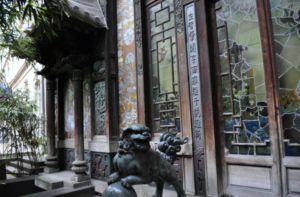
Monsieur Marcel ordered screens, paintings and statuary direct from Japan, and incorporated these with his own French touches such as art nouveau stained glass windows, used huge amounts of gold leaf in his own interpretation of “Asian” baroque ornamentation and designed fanciful furnishings.
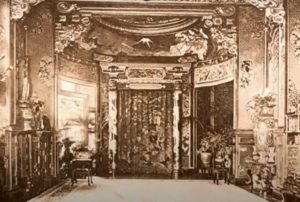
Amandine adored her new plaything, and plunged into organising, almost non-stop, lavish banquets, balls, concerts, plays and ‘themed’ evenings. La Pagode became a focal point for Paris’ high society and their frenetic social life, with Amandine reigning over these extravaganzas dressed in elaborate Japanese costume as ‘Empress of the Rising Sun’.
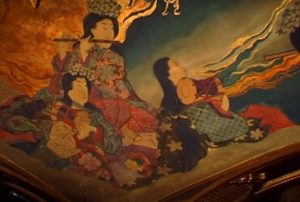
Unfortunately only a few months later, Mme Morin abandoned her husband for a suave and handsome young man, 15 years her junior—who, humiliatingly, was the son of M. Morin’s co-director of Le Bon Marché—and the couple took ship and fled to the New World.
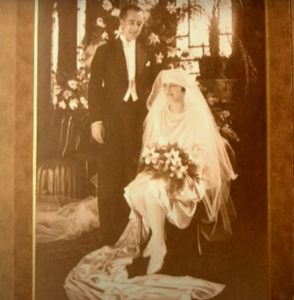
M and Mme Morin divorced, allowing Amandine to marry her dashing young lover. However La Pagode still continued to be the venue for lavish parties, with Amandine’s best friend assuming the role of Empress of the Rising Sun for some time. One society guest recalled “stepping through the gate into the garden was like entering a fairyland with candles flickering everywhere.” She told of a full orchestra in black tie, and dancing that went on into the small hours in the opulent hall—“it was unforgettable”.
Eventually though, in 1927 La Pagode was put on the market. Sadly, due to its very unusual configuration, no offers were forthcoming and the building languished, unused and seemingly unloved.
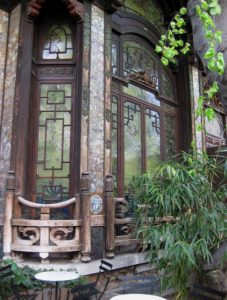
At one stage, a delegation of Chinese diplomats was interested in La Pagode as a possible building for their embassy. Sadly, the deal fell through when it was noticed that the panels and frescoes imported from Japan depicted battle scenes of the Sino-Japanese War of 1894-5.

La Pagode remained closed until 1931 when it was transformed into a cinema, specialising in quality avant-garde films. The cinema closed during the Nazi occupation of World War II, although it was secretly still very busy. Members of the French Resistance used its underground passages that were connected to numerous mansions in the neighbourhood as escape routes for those on the run from the enemy.
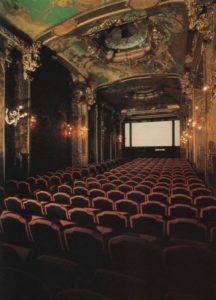
After the war, La Pagode resumed its role as an art-house cinema until the mid ‘80s. The cinema’s heyday however was the 1960s-70s, when it was a magnet for the city’s artistic and intellectual community. In 1972 the film director Louis Malle took charge of La Pagode. He transformed the theatre, brought the bamboo garden back to life and set up a salon de thé concession in the garden. The bamboo garden was declared a historic monument in 1983.
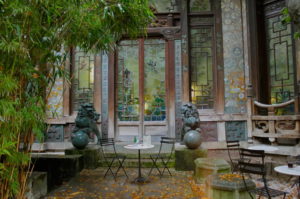
But its popularity was on the wane. A projectionist recalled a particularly slow day, running the scheduled 2.00pm session when only one person showed up. She sat alone in the hall watching a Louis Malle film. It was Jacqueline Kennedy. Alas, the slow days became more and more frequent, and in 1985 the owners put it up for sale. It underwent numerous unfortunate incarnations—one proposal, fortunately rejected, was for the lower level to be turned into a carpark.
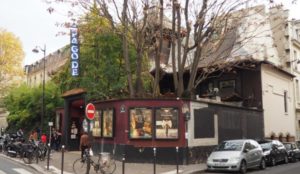
In 1990 it was spared the ultimate indignity of being turned into another outlet for an American fast food chain, whose logo is the golden arches, and with a philosophy of “location, location, location”—an outraged Minister of Culture, Jack Lang, had it listed as a Historic Monument. Under the ownership of Gaumont Cinémas, it became a popular cinema venue for another 15 years. It closed its doors in November 2015.
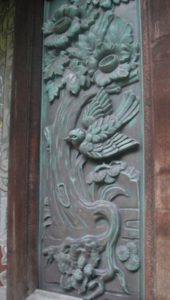
Once again it was sold, and all the interior fittings and fixtures were stripped away and sold off at auction. For three more years, abandoned and forlorn, it seemed as though it was destined to a sad fate when, in 2017 a New York property developer, one Charles S. Cohen, purchased it from the elderly owner. It seems though that Mr Cohen is a huge movie fan, who also loves French culture—he already owned a vineyard in Provence, various fashion labels, and had a good, working relationship with French artists and architects, and has produced a number of well-regarded films. By his own description, he is a “born cinéphile”.
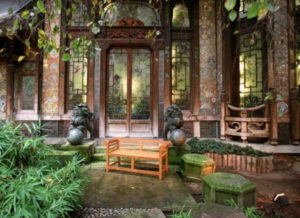
He has been working closely with the French government’s Office of Historic Monuments on restoration plans, and announced in 2019 that he intended that La Pagode become “a renovated venue that could also play host to a wealth of events of gatherings while remaining true to its heritage.”
Who could have dreamt of anything better!
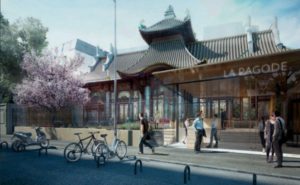
The last information available about La Pagode is that it will re-open as a cinema in 2021.
La Pagode is located at: 57, rue de Babylone, in the 7th arrondissement
The story of the pagodas of Paris will be continued next time!
